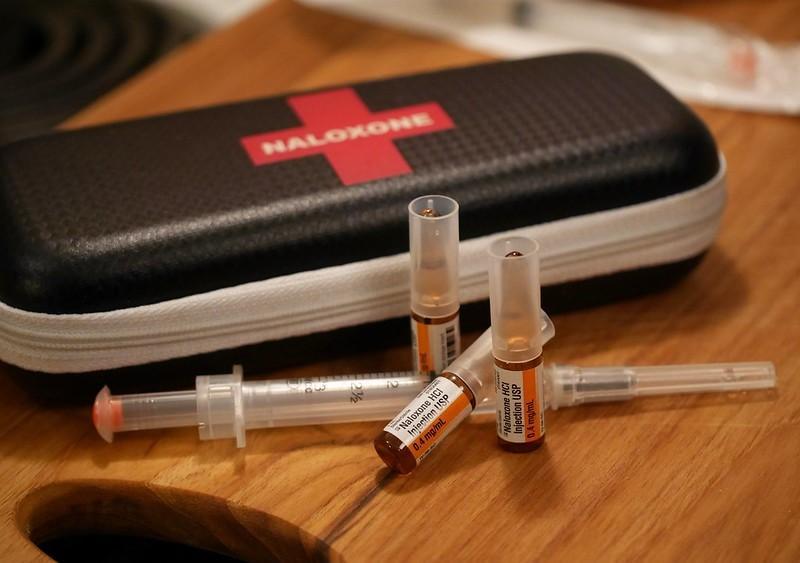Recently, a joint Food and Drug Administration (FDA) advisory committee unanimously approved an over-the- counter (OTC) version of the prescription naloxone (aka NARCAN) nasal spray, an opioid overdose reversal agent.
Opioid overdoses are a national crisis. In 2021, there were over 80,000 opioid overdose deaths (70–80% of all drug overdose deaths in the US). Thirty four percent of opioid overdoses happen to individuals under 34. The rise of fentanyl-laced drugs is considered a key reason for these rising death rates.
Opioid deaths occur because of respiratory depression (the victim stops breathing). Ninety five percent of opioid overdoses can be successfully reversed if naloxone is administered in time. The drug begins working right away, enabling victims to breathe normally 2 to 3 minutes after the first dose.
The drug is easy to administer and does not require inhalation, assembly, or specialized training. It’s also easy to carry, store, and does not require needles. Further, in 40% of the deaths, there was a bystander who could have administered naloxone.
Proponents argue that making naloxone spray available OTC in vending machines, convenience stores, supermarkets, and big box stores would help overcome current barriers to accessing the drug. For example, despite the rising death rates, some pharmacies still refuse to stock naloxone.
All 50 states have a Standing Order which allows pharmacists to dispense naloxone without a prescription. However, states have different liability protections and different rules for when a pharmacist can prescribe the drug.
Easier access to naloxone could also reduce the shame and stigma, especially among the young and most vulnerable, who fear that going to the ER might result in exposure or arrest. This may be their first encounter with a drug, or they may have gotten it from a friend or at a party. Widespread availability of naloxone would also reduce deaths from accidental overdoses of a prescribed opioid (deaths in the elderly population are increasing).
Opponents argue that naloxone prevents users from receiving the consequences of their actions and it does little to help users turn their lives around. They argue that it perpetuates the cycle of addiction. The data disproves these claims, in fact, it shows that those who have had a near death experience are MORE likely to enter treatment. The majority of overdose patients do not have repeated overdose events.
Naloxone also causes opioid withdrawal symptoms, which can act as a catalyst to seek treatment and maintain recovery.
Researchers investigated the traits of those who oppose the widespread availability of naloxone. In a regression analysis that adjusted for demographic characteristics, they concluded that opposition was most strongly related to authoritarianism, the perception that opioid users present a threat to the country, a belief that users have lower moral standards, and that this is a just consequence for their sins.
Fortunately, the committee disagreed.
“The unanimity of the committee is a profound statement about how important this is,” said Dr. Jeffrey Brent, University of Colorado, Aurora.
This isn’t a cure for the epidemic, but it is a cure for the deaths caused by it. It removes judgement in favor of giving users the opportunity to recover.
Of course, those who prefer punishment and judgement will not be pleased with this recommendation or the data that supports it. But most of us believe that the goal should be to reduce mortality, not prescribe morality. Notable celebrities, such as Prince, would be alive today had they had access to this life-saving drug.
Thousands of deaths will be avoided by expanding access to naloxone.
Now, that’s a win.
Angela Rieck, a Caroline County native, received her PhD in Mathematical Psychology from the University of Maryland and worked as a scientist at Bell Labs, and other high-tech companies in New Jersey before retiring as a corporate executive. Angela and her dogs divide their time between St Michaels and Key West Florida. Her daughter lives and works in New York City.



Scott Kane says
This is vitally important in stemming the tide of our opioid crisis. The hope is that better availability and training will get more rapid-response kits in the hands to help someone in crisis. We need to do more to reduce addiction and death.
Angela Rieck says
Thank you for comments…I hope that there is a way to invest in quality recovery treatment over jail cells.